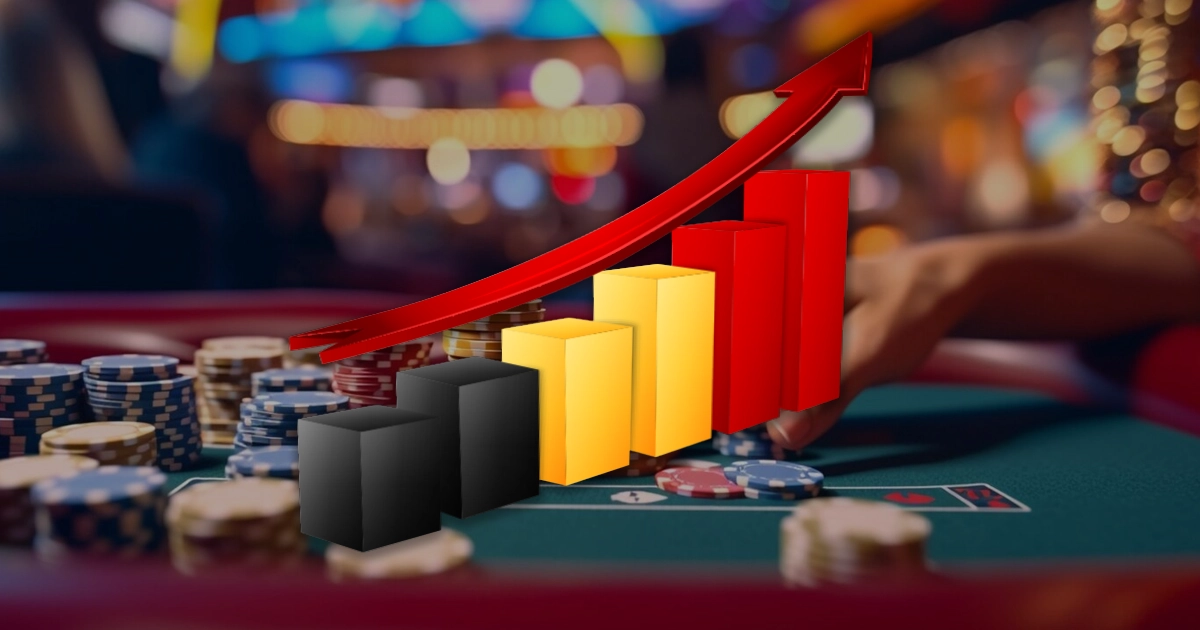New study! Gambling companies find clever loopholes in Belgian law at EURO 2024
During the 2024 European Championship, Belgian viewers saw gambling-related communications remarkably often. More than half remembered sponsored messages on social media, even though these have been banned in Belgium since July 2023.
Gambling advertisements during matches, in newsagents and on websites were also frequently noticed. So says a recently published study done by leading Belgian scientists.
Gambling memory increases likelihood of betting
A clear relationship emerged: the better people remembered gambling communications, the more likely they were to actually bet on the tournament. Almost a quarter of participants had wagered money.
On average, they spent 241 euros, with outliers of up to 15,000 euros. More than half reported having gambled more than usual.
Perception of what others do plays a role
The influence of gambling communication runs partly through the idea that “everyone gambles”. Those who believed that others bet a lot were more likely to gamble themselves.
This so-called descriptive norm was the strongest predictor in the study. People appear to be sensitive to social influence.
Illusion of control makes gambling more attractive
A second mechanism is the illusion of control. Those who saw gambling advertisements were more likely to feel they had influence over the outcome.
This gave participants an unwarranted confidence in their chances of winning. This too contributed to increased gambling behaviour.
Belgian rules seem to have effect, but not enough
Although Belgium has had strict rules on gambling advertising since 2023, companies appear to be finding ways. Own media and sponsored posts continue to exert influence.
Still, overall gambling communication recall was relatively low. So the rules seem to have some effect.
Gambling profile makes little difference
The extent to which people exhibited risky gambling behaviour did not make a significant difference in the relationship between communication memory and gambling behaviour.
Both problem gamblers and others were found to be susceptible to the influence of communication.
Research shows need for international approach
The study argues that only an international or comprehensive ban can close the loopholes. Sponsorship through side brands and foundations is another way out for gambling companies.
The study calls for stronger monitoring and enforcement.
Striking figures from the study
Of the 1611 participants, two-thirds were men. The average age was 41. More than half had a secondary education degree.
80% were not classified as problem gamblers. Nevertheless, 24.8% bet money during the European Championship. On average, they saw 20 out of 51 matches.
| Characteristic | N (%) | Mean (SD) | 25th percentile | Median (50th) | 75th percentile | Range |
| Age | 41,53 (17,38) | 26,00 | 38,00 | 54,00 | 18–95 | |
| Women | 533 (33,2%) | |||||
| Men | 1074 (66,7%) | |||||
| Education level | 3,69 (0,84) | 1–6 | ||||
| No education | 6 (0,4%) | |||||
| Primary education | 37 (2,3%) | |||||
| Secondary education | 737 (45,7%) | |||||
| Professional bachelor’s degree | 513 (31,8%) | |||||
| Master | 303 (18,8%) | |||||
| PhD | 12 (0,7%) | |||||
| Gambling profile | ||||||
| No gambling problems | 1031 (64%) | |||||
| Mild risk | 89 (5,5%) | |||||
| Moderate risk | 72 (4,5%) | |||||
| Problem gambler | 82 (5,1%) | 6,00 | 15,00 | 36,00 | 1–51 | |
| Reminder viewing behaviour | 20,41 (16,18) | 15,00 | 40,00 | 125,00 | 1–15.000 | |
| Money spent on EURO 2024 | 241,34 (1087,18) | 1–5 | ||||
| Impact on gambling behaviour | 3,53 (0,93) | |||||
| Gambled a lot less | 13 (3,3%) | |||||
| Gambled less | 33 (8,5%) | |||||
| Gambled equally as much | 127 (32,6%) | |||||
| Gambled more | 168 (43,1%) | |||||
| Gambled a lot more | 49 (12,6%) | 1,33 | 1,89 | 2,56 | 1–5 | |
| Gambling communication reminder | 2,03 (0,83) | 2,00 | 3,00 | 4,00 | 1–5 | |
| EURO 2024 matches | 2,70 (1,21) | 1,00 | 3,00 | 4,00 | 1–5 | |
| Sponsored posts on social media | 2,61 (1,29) | 1,00 | 1,00 | 3,00 | 1–5 | |
| Social media pages of betting companies | 1,95 (1,27) | 1,00 | 1,00 | 2,00 | 1–5 | |
| Social media influencers | 1,65 (0,99) | 1,00 | 1,00 | 2,00 | 1–5 | |
| Social media tipsters | 1,62 (1,05) | 1,00 | 1,00 | 3,00 | 1–5 | |
| Websites and apps of gambling companies | 2,05 (1,35) | 1,00 | 2,00 | 2,00 | 1–5 | |
| Emails or SMS of gambling companies | 1,64 (1,04) | 1,00 | 2,00 | 3,00 | 1–5 | |
| Newsagents or supermarkets | 2,42 (1,26) | 1,00 | 1,00 | 1,00 | 1–5 | |
| Betting shops or casinos | 1,63 (1,25) |
Research underpins previous findings
The results are in line with previous research. Advertisements lead to more gambling. Illusions of control and misconceptions about how often others gamble are well-known mechanisms.
The European Championship 2024 appears to be a catalyst for these processes, even in a country with strict regulations.
Who did the research?
The research was conducted by a team of Belgian scientists: Katho Jacobs, Bram Hartmann, Bram Constandt, Liselot Hudders and Steffi De Jans. They are attached to different departments at Ghent University and specialised in health promotion, media influence and gambling behaviour.


